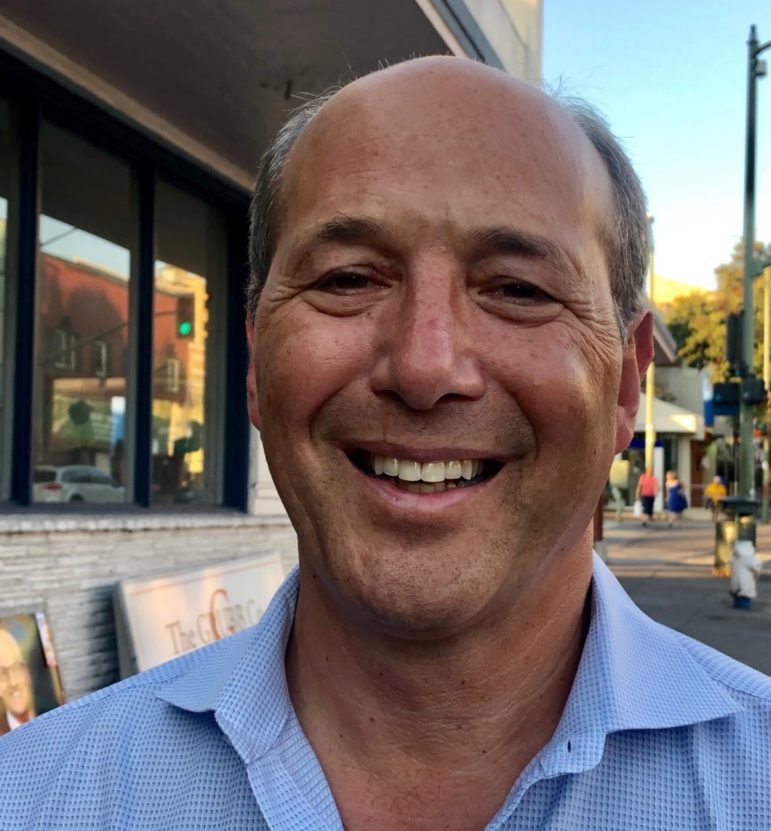
Piedmont attorney, and contributer to the Exedra, Jeff Bleich is probably best known as former U.S. Ambassador to Australia, White House Special Counsel during the first Obama term, and onetime candidate for Lt. Governor of California. In recent years he has created a platform outside of government to take on some of the thorniest problems of the day: climate change, cyber-security, gun control, education and income inequality, and more. Bleich currently advises PG&E, the Fulbright Scholarships, the James Brady anti gun-violence campaign, the East-West Center and others. He spoke with Exedra editorial adviser David E. Thigpen.
Q: You recently went on the PG&E utility board and became it’s chair. Since then, PG&E took a big step toward settling claims related to the 2017-2018 wildfires. Why is this settlement important?
A: PG&E has a lot of work to do to be the company that California deserves. That starts with owning up to its short-comings. The recent settlement would resolve 85% of PG&E’s wildfire claims. It is an important start.
Q: A new digital security research center was named after you at an Australian university. How did this come about?

A: Probably a case of mistaken identity! I gave a number of speeches at Flinders University in South Australia, about the promise and perils of digital technology for democracy. Like any tool, digital technology can be used for good or ill. Flinders decided they wanted to open a research center on digital governance and security to protect democracies. An anonymous donor came forward to finance it, and figured naming it for me is a good way to stay anonymous. I’m very humbled and grateful. [Learn MORE about the Jeff Bleich Centre.]
Q: When you say digital technology is being used for ill, what do you mean?
A: Digital technology has great power to do good. But bad actors have also recognized its power to persecute, create false narratives, confuse and disorient the public, and make it difficult for democracies to function. It’s a continuing threat around the world. We can expect mischief from Russia, China, Iran, North Korea and others in our next presidential election.
“One hundred years ago there was a fear that people were not being prepared for the economy, but that generation did something about it. We’ve got to do the same.”
Jeff Bleich
Q: What are your thoughts on the 2020 presidential election?
A. We need to have confidence in the outcome of our elections. Part of that is ensuring that everyone can vote, and their votes are properly counted. But even if an election is fair, people have to vote. I favor Australia’s system where they treat voting like jury duty – you have to show up.
Q: Speaking of politics, there’s an abundance of scapegoating and xenophobia at play in the world today. How do we oppose that?
A: I joined the board of the Fulbright [scholarship program] when I came back from being Ambassador, because it’s a powerful way to break down bias and stereotypes. Fulbright has sent 340,000 scholars around the world to form bonds and help fix problems that afflict all humans regardless of where we come from. It’s hard to vilify or dehumanize a people when you have a visitor from another part of the world come to your country and help you. It builds trust.
Q: One of the hottest issues Americans seem unable to move forward on is gun control. What did you learn during about this in your time in Australia?
A: It can be solved. Australians are a lot like Americans: they have a strong gun culture, a strong sense of personal rights and liberties, and a fierce political divide. But after a terrible mass shooting, they set aside their differences to get comprehensive background checks, a ban on assault weapons, and a gun buy-back. In the 20 years since, mass shootings have been all but eliminated. We can do the same thing.
Q: What are some of your other concerns?
A: We are still talking about issues we didn’t solve 30 years ago, and not even discussing the newer issues that are overtaking us. We’ve had runaway technology, and walkaway governance. Our education system hasn’t caught up with the needs of the new economy. Political candidates barely mention what automation will do to jobs. One hundred years ago there was a similar fear that people were not being prepared for the economy, but that generation did something about it. We’ve got to do the same. Back then they added public high school, and fundamentally changed the curriculum. That was a big call. We need leaders to take those sorts of risks.
Q: So what are your plans? Will you run for elected office again, or take another position in federal government?
A: My career has not been based on planning. I just try to go where I can do the most good. I’ve also spent enough time in Washington, D.C. to appreciate that it’s best not to ever tell anyone your plan.
COLUMNS BY JEFF BLEICH